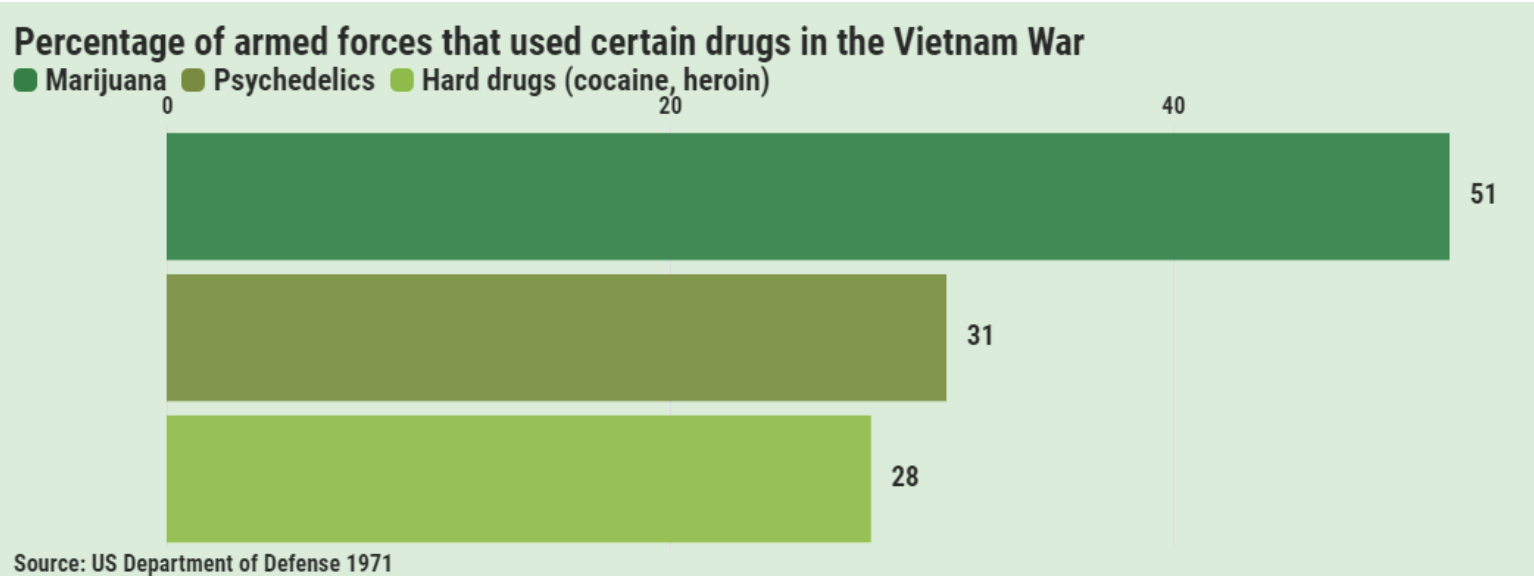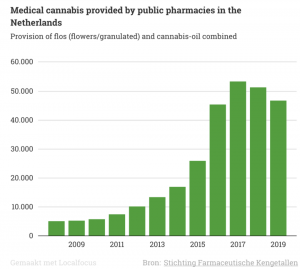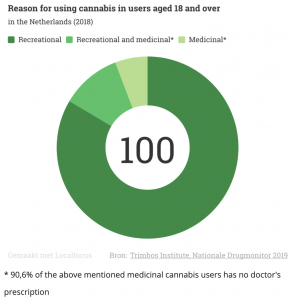The start of the controlled cannabis supply chain experiment, where legally produced cannabis will be sold in coffeeshops in ten municipalities, grown by government-designated growers seems to be moving the Netherlands in the direction of cannabis legalisation. What many people don’t know, however, is that medical cannabis has been legal in the Netherlands for a while now. James Burton was one of the very first to grow cannabis legally for medical use. This is his story.
Vietnam, 1968
1968 – A group of young American boys are sitting around a campfire, talking, laughing and telling stories. You would almost forget that they are here to fight a war. One of them is James Burton, only 19 years old. It feels good to forget about the horrors of war they witness on a daily basis, whether that be with alcohol, cigarettes, marijuana or heroin. A few nights before, someone was killed in their bed in the middle of the night. So although they might not say it out loud, everyone is scared to go to sleep at the risk of not waking up again. It’s better to go to sleep at seven o’clock in the morning, than seven o’clock at night. Everyone is stressed and most of all exhausted, the danger being that when you are stressed out, you make mistakes and making mistakes in the jungle of Vietnam comes at a high price. The group around the campfire is passing around a shotgun with marijuana in it. They blow and the smoke from the pipe goes in the barrel, while being sucked out of the other end. It feels good: the high temporarily makes them forget about the people that are trying to kill them ‘out there’.

Bowling Green, Kentucky, 1972
1972 – After returning from Vietnam, Burton finds out he has glaucoma, a degenerative disease that puts severe pressure on the eyes. If left untreated it can cause vision loss and even blindness. His brothers all suffer from the same disease, leaving them short of sight. Burton, however, doesn’t even need glasses. The only explanation he can find is that the marijuana he has been smoking has saved his sight.
According to research undertaken by Keith Green in 1998, smoking marijuana causes a fall in intraocular pressure (IOP), which is the fluid pressure inside the eye, in about 60-65% of users. The problem is, however, the drop in pressure only lasts for a few hours, so the consumption of marijuana needed to keep the IOP at a safe level would be rather high.
Police raid Burton’s Kentucky farm, 1987
1987 – Eddie Railey, Kentucky state police investigator, calls it a one man operation. “It’s not that large, but it’s probably the most sophisticated operation I’ve seen in this area.” When Burton’s farm gets raided by police, they find over an estimated 112, 000 dollars’ worth of marijuana and 4000 dollars’ worth of processing equipment. Burton gets charged with cultivating marijuana and is facing over 50 years behind bars. He ends up pleading not guilty due to his medical necessity. The federal jury appears to agree with that, finding Burton not guilty of a felony crime, but three counts of misdemeanour possession. Burton’s attorney, Steve Hixson, calls the penalty mild, compared to what he was initially facing, admitting that ‘it’s a victory by any standard’. Burton ends up being transferred to 6 different federal facilities in a year, to avoid him talking to the press about his ‘medical necessity’.
Click here to see exactly where Burton’s story unfolds





